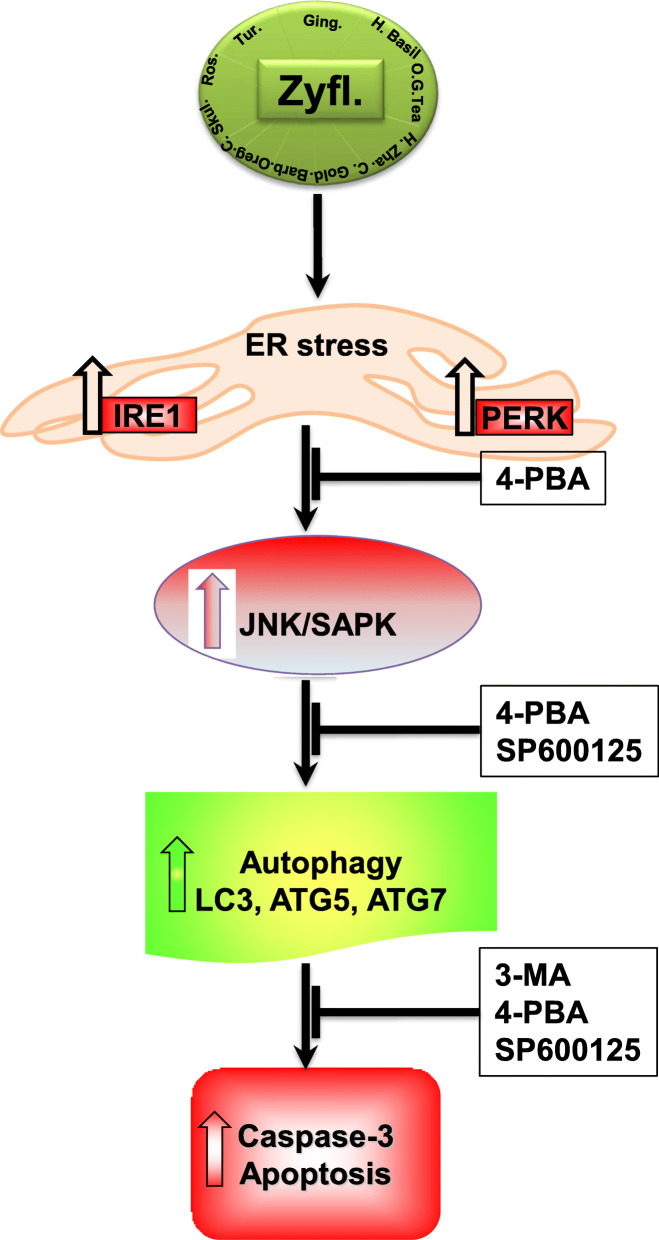Schema 1.
Overview of the Pro-Apoptotic Effects of Zyflamend in Pancreatic Cancer Cells. Zyflamend treatment induced ER stress, autophagy, MAP kinases and apoptosis in pancreatic β-TC6 Cells. Previous studies have shown that activation of AMPK in pancreatic cancer cells by chemotherapeutic agens induces apoptosis and autophagy via the AMPK/mTOR signaling pathway (dotted lines) [47]. Similarly, activation of the JNK/SAPK pathway [48] by stressors and chemotherapeutic agents can lead to apoptotic cell death of pancreatic cancer cells. Our study shows that treatment with pan-caspase inhibitor Z-VAD.fmk prevented the cleavage of caspase 3 but had no effects on AMPK, autophagy, or ER stress. Zyflamend treatment activated AMPK; however, treatment with AMPK inhibitor CC did not result in changes to ER stress, apoptosis, autophagy, or JNK signaling pathways. Autophagy inhibition with 3-MA inhibited autophagy and apoptosis only. Zyflamend activated both the IRE-1 and PERK branches of the ER stress mediated UPR and resulted in the subsequent upregulation of the downstream JNK signaling pathway. ER stress inhibition with 4-PBA resulted in decreased JNK activation, autophagy, and apoptosis. While inhibition of JNK with SP600125 significantly reduced the the level of both, apoptosis and autophagy

